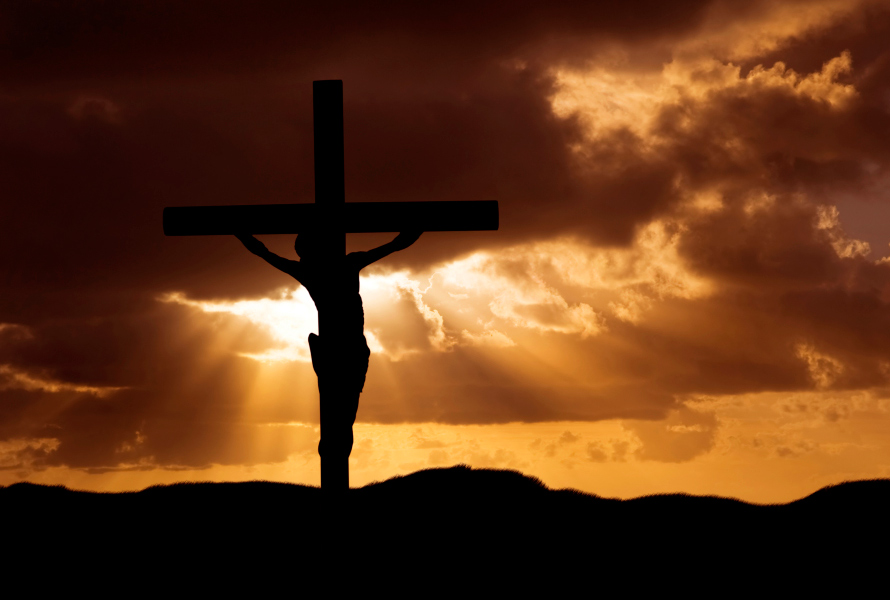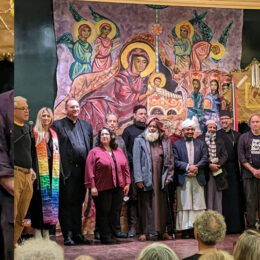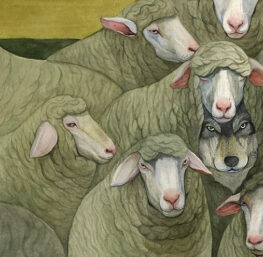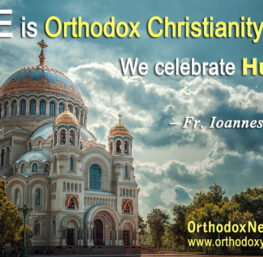From the light of Holy Thursday we enter into the darkness of Friday, the day of Christ’s Passion, Death and Burial. In the early Church this day was called ‘Pascha of the Cross,’ for it is indeed the beginning of that Passover or Passage whose whole meaning will be gradually revealed to us, first, in the wonderful quiet of the Great and Blessed Sabbath, and, then, in the joy of the Resurrection day.
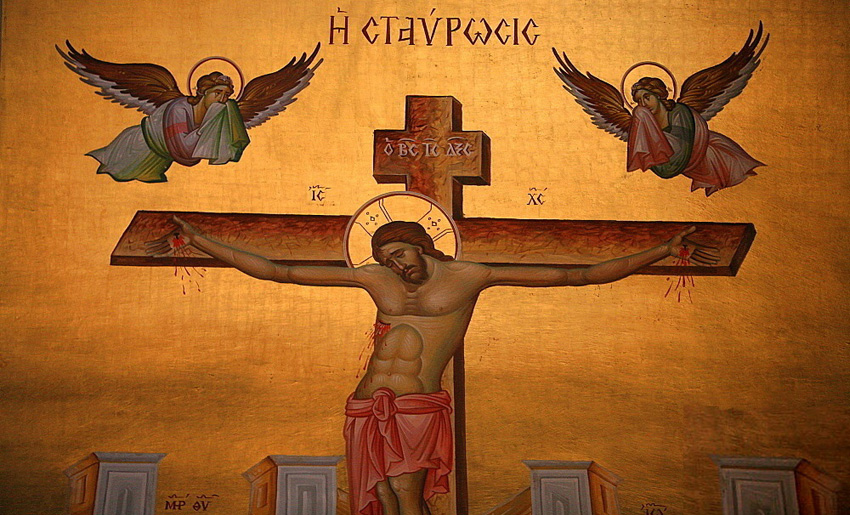
The Orthodox Church never loses sight of the universal significance of the Passions of Christ. The glorification of the wounds, the bloodshed, and the torturing agony experienced by Christ does not find its origin in a simple awe before human suffering. Beyond the scene of the human suffering of Christ is the reality of His work for the redemption of all men.
He is the God-man. He does what no human being alone can do. He takes upon Himself the sin of all and shatters its power. He suffers and dies for all in order that all might be able to pass through and find new hope in the agonies of suffering and death. The hymnography enumerates each aspect of the human suffering of Christ.
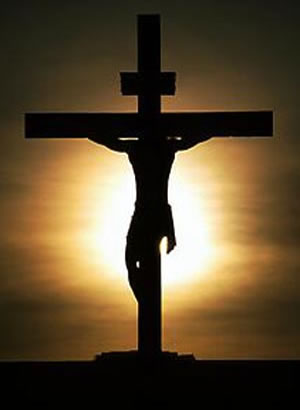
The King of the Angels is decked with a crown of thorns.
He who wraps the heavens in clouds is wrapped in the purple mockery.
He who freed Adam in the Jordan is slapped in the face.
The Bridegroom of the Church is affixed to the cross with nails.
The Son of the Virgin is pierced by a spear.
We worship Thy passion, O Christ.
Show us also Thy glorious resurrection.
He who clothes Himself with light as with a garment stood naked for trial.
He was struck on the cheek by hands that He himself had formed.
A people that transgressed the law.
Nailed the Lord of Glory to the cross.
Then the curtain of the temple was torn in two.
Then the sun was darkened,
Unable to bear the sight of God outraged,
Before Whom all things tremble.
Let us worship Him.
The disciples denied Him,
But the thief cried out:
“Remember me, O Lord, In Thy Kingdom!”
